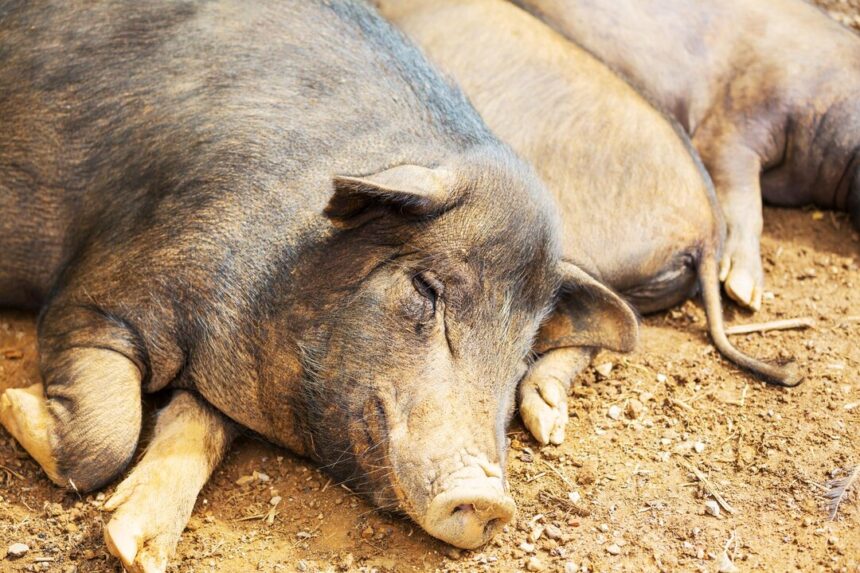Large Black pigs are a heritage breed known for their docile temperament, excellent foraging abilities, and superior meat quality. With their unique characteristics and adaptability to various farming systems, they have become increasingly popular among pig farmers in South Africa. Whether you’re considering starting a breeding program or expanding your existing herd, there are several important factors to consider when breeding and farming Large Black pigs. In this article, we’ll explore 10 essential considerations to help you succeed in breeding and farming Large Black pigs in South Africa.
- Understanding Large Black Pig Characteristics:
Large Black pigs are a critically endangered breed characterized by their large size, long bodies, and distinctive black coloration. They have floppy ears that cover their eyes, which help protect them from sunburn and insect bites. - Breeding Objectives:
Define your breeding objectives and goals, whether it’s improving meat quality, increasing litter size, or preserving the breed’s genetic diversity. Select breeding stock with desirable traits that align with your objectives to achieve desired outcomes in your herd. - Genetics and Bloodlines:
Source breeding stock from reputable breeders with a focus on quality genetics and bloodlines. Look for Large Black pigs with good conformation, sound health, and proven performance to establish a strong foundation for your breeding program. - Housing and Environment:
Provide suitable housing and environmental conditions for Large Black pigs, including spacious pens or pastures, shelter from the elements, and access to clean water and shade. Ensure adequate ventilation and drainage to maintain optimal health and comfort for the pigs. - Nutrition and Feeding:
Develop a balanced diet and nutrition program tailored to the specific needs of Large Black pigs at different stages of growth and production. Provide high-quality feed, including grains, legumes, and supplements, to support optimal growth, reproduction, and overall health. - Health and Disease Management:
Implement a proactive health management program to prevent common diseases and parasites in Large Black pigs. Schedule regular vaccinations, deworming, and health checks, and maintain strict biosecurity measures to minimize the risk of disease transmission. - Reproduction and Breeding Practices:
Understand the reproductive cycle of Large Black pigs and implement sound breeding practices to maximize breeding efficiency and litter size. Use proven breeding methods such as natural mating or artificial insemination to achieve desired breeding outcomes. - Farrowing Management:
Prepare for farrowing by providing clean, comfortable farrowing facilities and attentive care during the farrowing process. Monitor pregnant sows closely for signs of labor and provide assistance as needed to ensure successful farrowing and healthy piglets. - Growth and Development:
Monitor the growth and development of Large Black piglets from birth to market weight, ensuring proper nutrition, health care, and management practices to support healthy growth and optimal meat quality. - Marketing and Sales:
Develop a marketing plan for selling Large Black pork products, whether through direct sales to consumers, local markets, or commercial outlets. Highlight the unique qualities and benefits of Large Black pork to attract buyers and maximize profitability.
Breeding and farming Large Black pigs in South Africa offers exciting opportunities for pig farmers to produce high-quality pork products and contribute to the preservation of a valuable heritage breed. By considering these 10 essential factors, you can establish and manage a successful Large Black pig breeding program, optimize herd performance, and achieve your farming goals in the dynamic agricultural landscape of South Africa.
Join 'Farmers Mag' WhatsApp Channel
Get the latest Farming news and tips delivered straight to your WhatsApp
CLICK HERE TO JOIN






